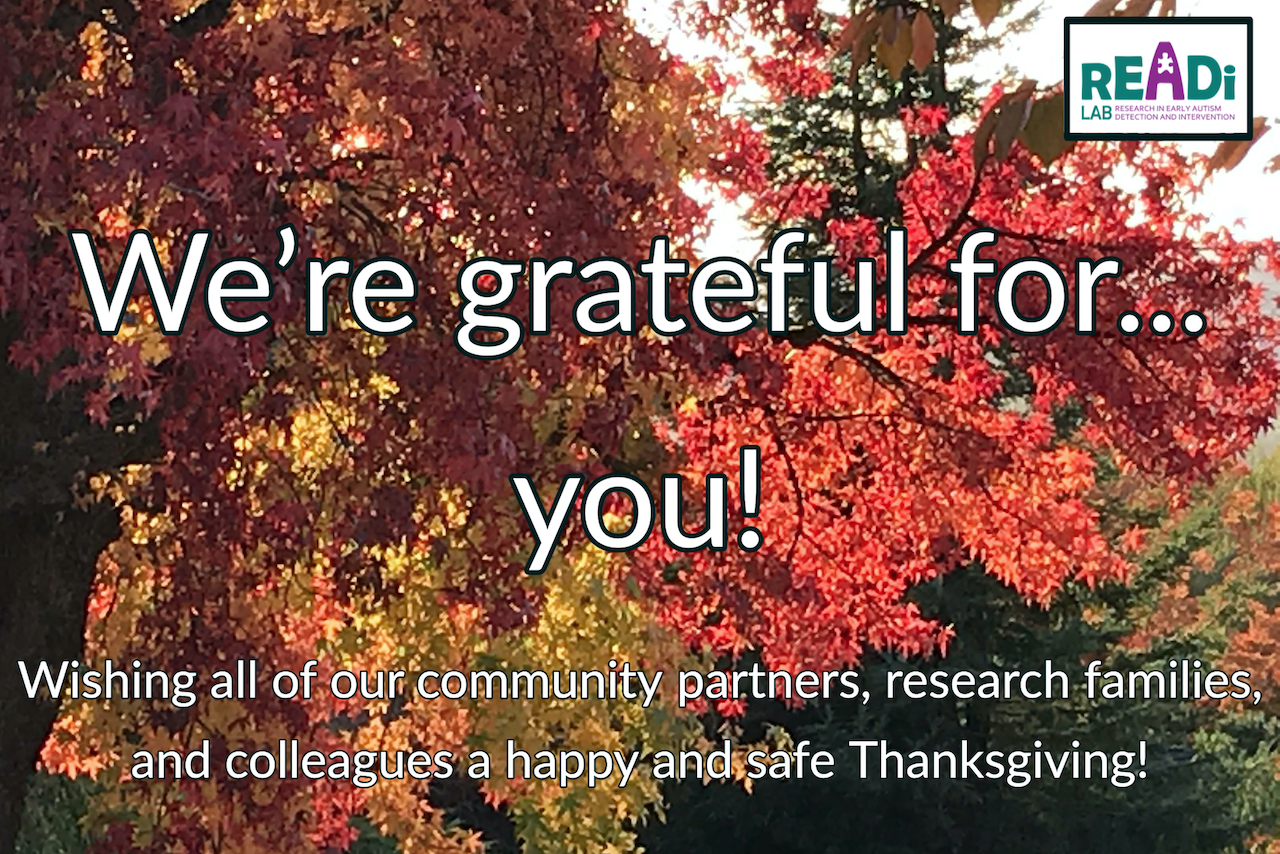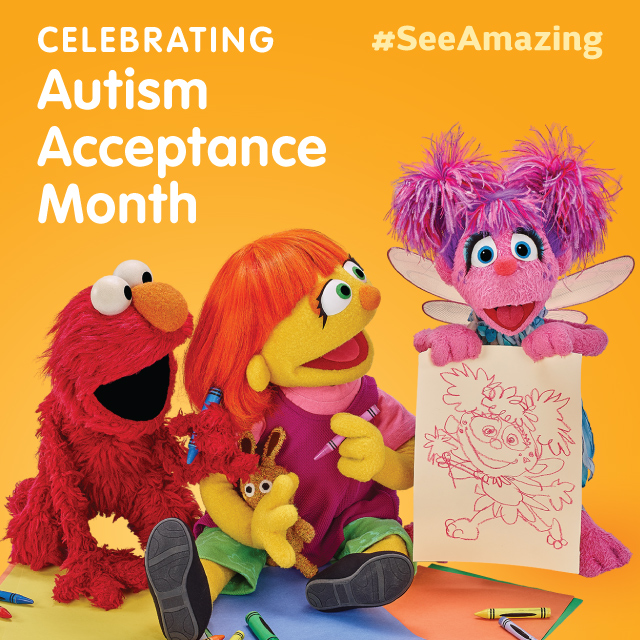
We are proud to celebrate #AutismAcceptanceMonth with our friends on @SesameStreet! Find new resources supporting children with autism and their families here: www.sesamestreet.org/autism #SeeAmazing
Research in Early Autism Detection and Intervention
By Taylor

We are proud to celebrate #AutismAcceptanceMonth with our friends on @SesameStreet! Find new resources supporting children with autism and their families here: www.sesamestreet.org/autism #SeeAmazing
By Taylor
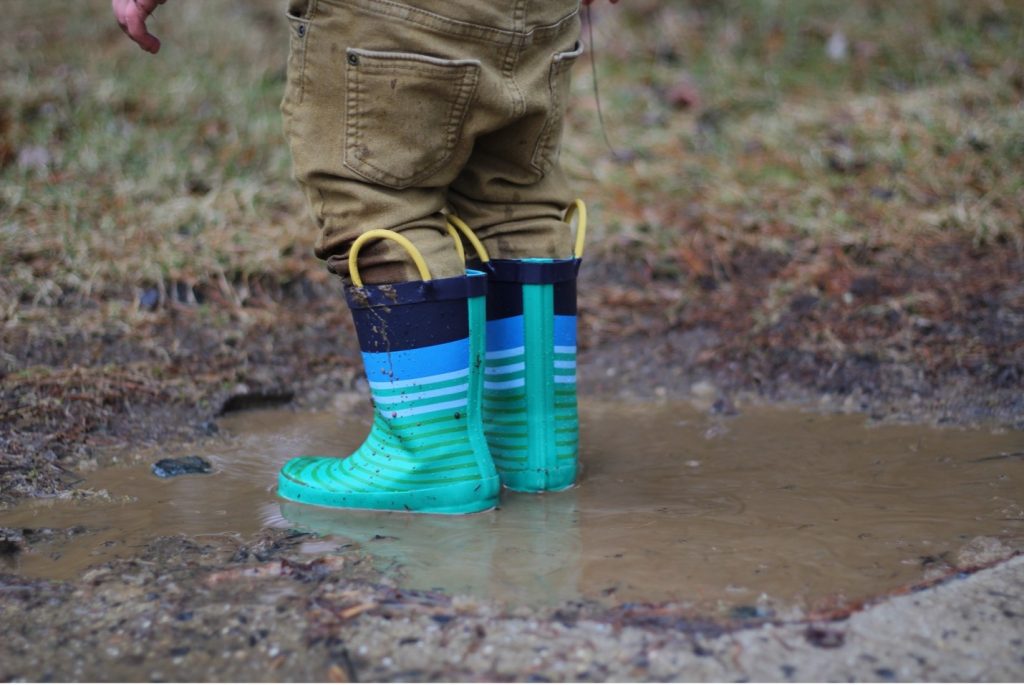
Happy Spring! As the weather becomes consistently nicer, it’s the perfect time to get outside and shake-off the rainy season blues. PBS Kids’ Outdoor Explorer Bingo is a hybrid with a traditional scavenger hunt. The goal is to reach bingo by racing to find things that crawl, are heavy or scratchy, and more!
Download your free bingo cards here.
By Taylor
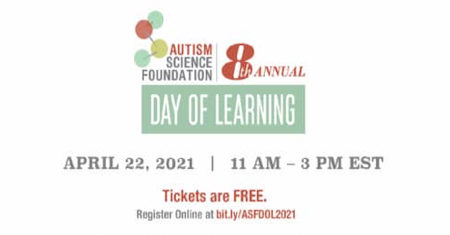
The Autism Science Foundation will be hosting its 8th annual Day of Learning on April 22, 2021. Six researchers throughout the United States and Canada will speak on varied yet important topics currently affecting the autism community. Presentations will be 15-min TED talk style, and all are welcomed. This free, online event will occur between 8 AM – 12 PM PST.
Learn more – and register for the event – here!
By Taylor

The READi Lab is excited to share some wonderful news! Dr. Sarah Edmunds, former UW student of Wendy’s and significant contributor to the mission of our lab, has landed a tenure-track Assistant Professor position in the Department of Psychology at the University of South Carolina, with a joint appointment in the Department of Educational Studies. Her research will focus on behavioral and psychosocial interventions that support autistic children and teens: how they work, for whom they work, and how we can increase equitable access to these interventions within community and school settings. Sarah’s new position is part of an effort to build an Autism Excellence initiative at USC. She is very excited to be a part of a wonderful new group of researchers, advocates, and clinicians!
By Taylor
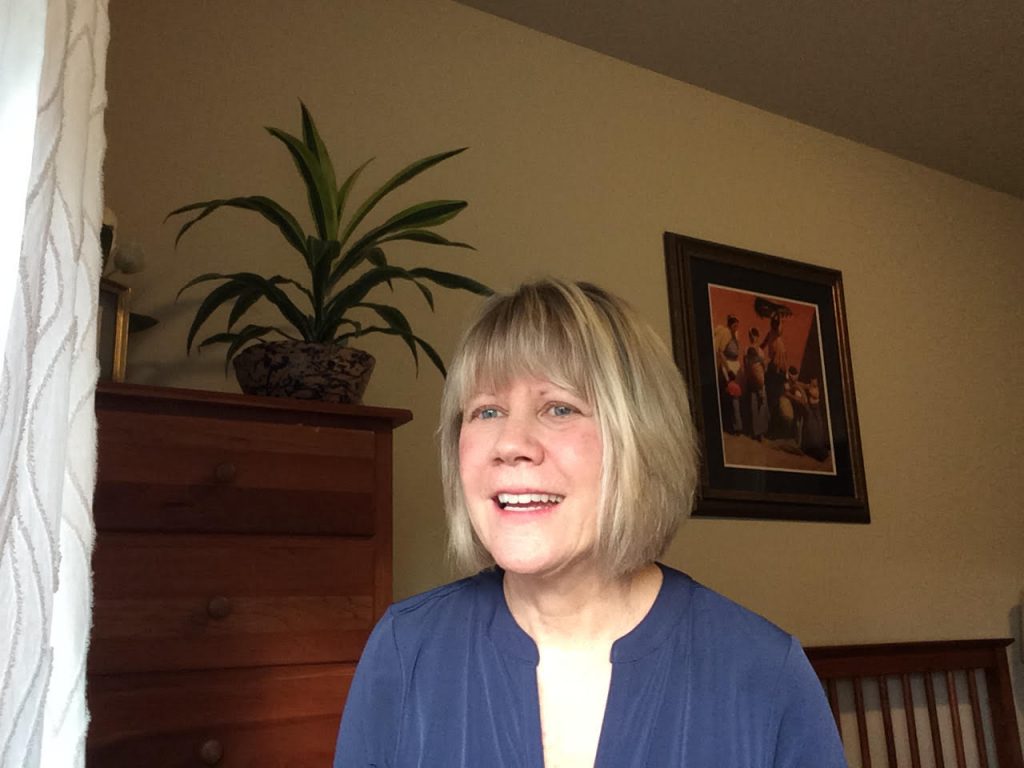
Meet Carol, our hardworking, part-time research coordinator. Family brought her to Seattle, but her budding interest in early autism identification and intervention brought her to UW! Learn a bit about her below.
I relocated from Pittsburgh, PA to the Seattle area in late summer 2018. I moved to the area to join my daughter, son-in-law and 3 young grandchildren (ages 4, 2 and 10 months).
I joined the READi Lab on a part-time basis in October, 2020. I have had a long research career in Pittsburgh prior to my move and enjoy working and learning in a research environment. I was intrigued by the types and quality of research undertaken by the READiLab and fully embrace the “mission” to improve outcomes for youth diagnosed with autism.
As a Research Coordinator in the READi Lab, I am working with the team to carry out a variety of tasks needed to move the studies forward. My overarching goal is to be of use!
My entire post-college career was spent with the Law & Psychiatry Program at the University of Pittsburgh/Western Psychiatric Hospital. During that time, I was part of the team carrying out research primarily in areas where mental health and the justice system intersect. I had a lot of opportunities to develop professional skills related to research study management but perhaps the most long-lasting effect of this work was the opportunity to talk with hundreds of study participants whose lives are very different from my own in many ways. Talking with these individuals in their homes opened my eyes to the fact that, despite some differences, there is a lot that we share as humans.
Oh, yes! Like most Pittsburghers (a.k.a., “yinzers”), I have a special place in my heart for the Steelers, Penguins and even the Pirates. If there is not a Pittsburgh team in the competition, then you will hear me cheering on the Seattle team! But sports are not my primary source of entertainment. I have even more fun playing with my grandkids and exploring the outdoors here in Washington!
I spent a year living on the Navajo reservation (in AZ) and teaching in a Special-Ed Preschool
I jumped from an airplane at 20,000 feet (with a parachute of course)
I come from a large family with 8 siblings, 25 nieces/nephews, 50 first cousins and 19 aunts/uncles (not counting their spouses). Family reunions are crowded!
I parachuted one time, but it was only from 13,000 feet…. still pretty cool. Checked off a bucket-list item!
By Taylor

Typically, a young child suspected of having an autism spectrum disorder (ASD) would engage with a clinician(s) in a series of play-based activities as part of the diagnostic process. As the COVID pandemic has rendered in-person interactions less feasible, clinicians and researchers have developed assessment activities that can be administered remotely. Our READi Lab team, along with researchers from Rush University Medical Center, Boston University, and Michigan State University compiled a list of some new approaches that can be implemented during a tele-assessment for early identification by experienced clinicians. You can access the article here!
We hope this information will be useful for our community partners and research colleagues who are involved in assessments with toddlers during these socially distanced times.
By Taylor

One of the primary goals for our READi lab team is to enhance early intervention (EI) outcomes for toddlers at risk for or with autism. But what exactly does that mean? Emma Bryce and Lottie Kingslake with Spectrum created a 4-minute video to answer just that! They share how researchers (like us!) are attacking problem areas from all angles and how we can build upon current practices to reach more families.

Photo credit: Spectrum News
Published by Spectrum, the leading site for autism research news.
By Taylor

As the COVID pandemic extends into 2021, families may still have concerns about attending healthcare visits in-person. Autism Speaks’ Autism Treatment Network/AIR-P has shared a free toolkit designed to promote successful tele-health visits for autistic people of all ages. This kit was created with the help of the Family Advisory Council and it has tips and tricks for families and providers alike! Follow this link to download!
By Taylor
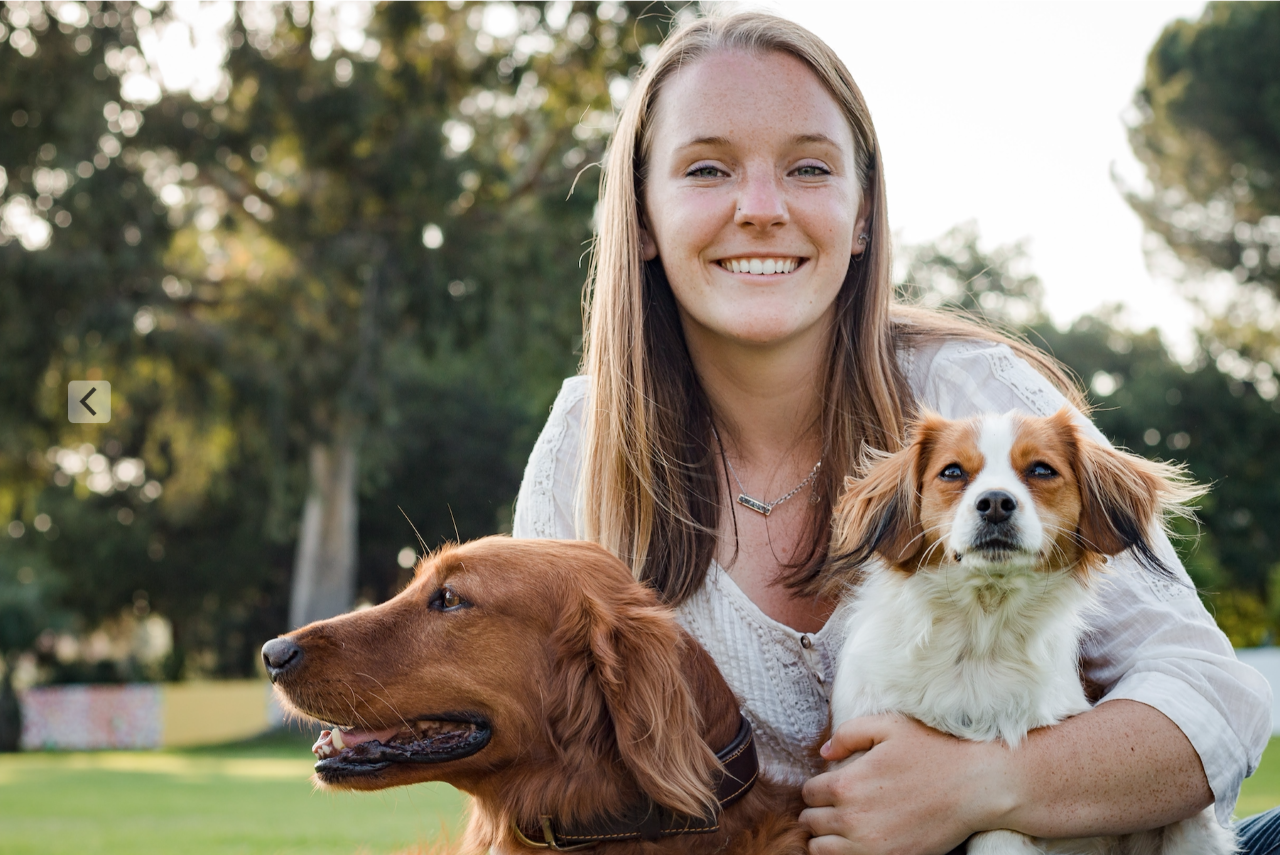
Say “Hi” to Sabine, who has been integral to the development of our new RISE study. Learn a bit about her and her motivation to reduce disparities in early autism care below.
What motivated you to join the READi Lab?
I knew I wanted to pursue a career in clinical psychology after graduating college, and I wanted more research experience to be better prepared for graduate school. The READi Lab caught my attention because of how committed they were to addressing access disparities, and I wanted to be a part of a lab that cared deeply about its participants!
What is your role in the lab?
I’m the research coordinator for our UW site for the new RISE study, a study focusing on improving access to quality care within Part C Early Intervention services throughout the United States. I have loved being part of a team of researchers across the country, and I’ve learned so much from watching a study get built from the ground up. Back when we were doing in-person assessments, I was the primary assessor for the Pathways study, and I miss working with our adorable participants.
You’ve been learning Spanish to connect with more of our participants. What’s that been like?
I was very proud of my (now lost) 200-day Duolingo streak, but I’m slowly working my way back up! Eventually I would like to take a real class, because I think providing multi-lingual care is key to making sure as many families as possible feel included in both research and clinical services.
You’ve hiked to the top of mountains and volcanoes, and you frequently rock climb. How cool! What has been your boldest adventure?
This is the best part about living in Washington! My favorite adventure here so far has been climbing in the Washington Pass area in the North Cascades. On my first trip there, I was so excited to climb that I ended up at the entirely wrong rock, halfway up the wrong climb. It could have ended badly, but a friendly stranger helped me out. I’ll never make that mistake in that area again!
Where in the world would your ideal adventure take you?
I would love to go mountaineering in Nepal. I studied abroad there during undergrad, and I met so many friendly people who I would like to visit. I’ll never do Everest, but there are plenty of other amazing mountains there!
Two truths and a lie! (Scroll down to see Sabine’s fib!)
I have not been rained on by leeches (thankfully!!!!)
By Taylor

A new READi Lab study was published in a special issue of the journal Pediatrics, which highlighted current autism research. In this article, we describe parent perspectives about communicating early autism concerns to care providers. We held three 2-hour focus groups during which 23 parents shared their experiences. They described what went well in their conversations with providers and also brought light to areas of concern. Interested to see if your experiences align with other Washingtonian families? Follow this link. Interested in learning about other autism research published in this issue? Follow this link to view the other 16 articles that were included.
By Taylor

It’s no secret that life has become quite complicated. Being kind is one of the easiest ways to help move onto bigger and better things in 2021. Join Elmo in playing Kindness Bingo, offered by Elmo’s World from PBS Kids and Sesame Street. Each square holds a kind act that you can do for someone else, such as writing a thank you note or making a phone call. How quickly can you and your family reach Bingo?
By Taylor

For one of our new grants, we are developing a screening tool to identify toddlers who may have delays in social communication. The tool is called “My Toddler’s Social Communication” and will illustrate pictures of toddlers engaged in 12 common social communication behaviors. We are looking for photos of toddlers from diverse backgrounds, so that all families will be able to see their child in the images and recognize that this measure was created with their family in mind. We are interested in photos of children between 16 and 30 months of age.
The behaviors we hope to represent with photos are:
If you have photos of your own child that you are willing to share, please send them to readilab@uw.edu. We will treat them with love.
By Taylor

The Autism Science Foundation (ASF) highlighted the major themes in autism research last year in an article titled, “2020: A Year Like No Other”. In this article, Dr. Alycia Halladay, Chief Science Officer at ASF, breaks down how the COVID-19 pandemic and other major events have affected autistic people and their families. The latest research is also summarized from major themes such as Earlier Detection & Diagnosis, Sex & Gender Differences, and New Interventions & Telehealth. What areas of autism care are you most eager to build upon in 2021?
By Taylor

Get to know Trent, one of READi lab’s diligent and hard-working graduate students. Learn a bit about his ongoing efforts to enhance early intervention provider trainings and to improve the quality of services for toddlers with or at risk for Autism Spectrum Disorder (ASD) below!
Prior to graduate school, I worked in a different lab at the UW focused on ASD research. During that time, Dr. Stone gave a presentation for our lab on the very cool and impactful research being conducted by the READi Lab. When I decided to apply to child clinical psychology doctoral programs, I knew that the READi Lab would be an awesome place for me to continue collaborating on important ASD research that is focused on directly improving the lives of children with ASD and their families.
My dissertation is looking at changes in family satisfaction with the ASD-related health care they receive and other indicators of family wellbeing following the introduction of Screen-Refer-Treat (SRT) into local Washington State counties. SRT was specifically designed to train primary care providers and early interventionists in evidence-based tools for early ASD detection and intervention. The hope is that such trainings increase community capacity for ASD-specific services and improve the quality of care received by families of young children who are showing early signs of ASD.
Well, I’m not sure I will ever grow up. In part, this is because I am a child at heart despite all my gray hair, but I also try to view growing as an action and not an achievement. My hope is that I am growing a little every day in terms of becoming a better partner, friend, researcher, clinician, and advocate for others.
Yes, I have a 1 year-old mini Australian Shepherd named Harper who is super fun and very smart.
Yeah, my wife and I have been sailing (racing and cruising) for about 5 years, but not as much this past year because of the pandemic. We have been fortunate to sail all around the Puget Sound region including many trips to the San Juan Islands. It’s hard to pick a favorite trip, but the biggest trip we did was from Vancouver BC to Seattle via the Gulf Islands. It’s pretty magical up there.
Trent has not (yet) had a close encounter with orca whales while kayaking.
By Taylor
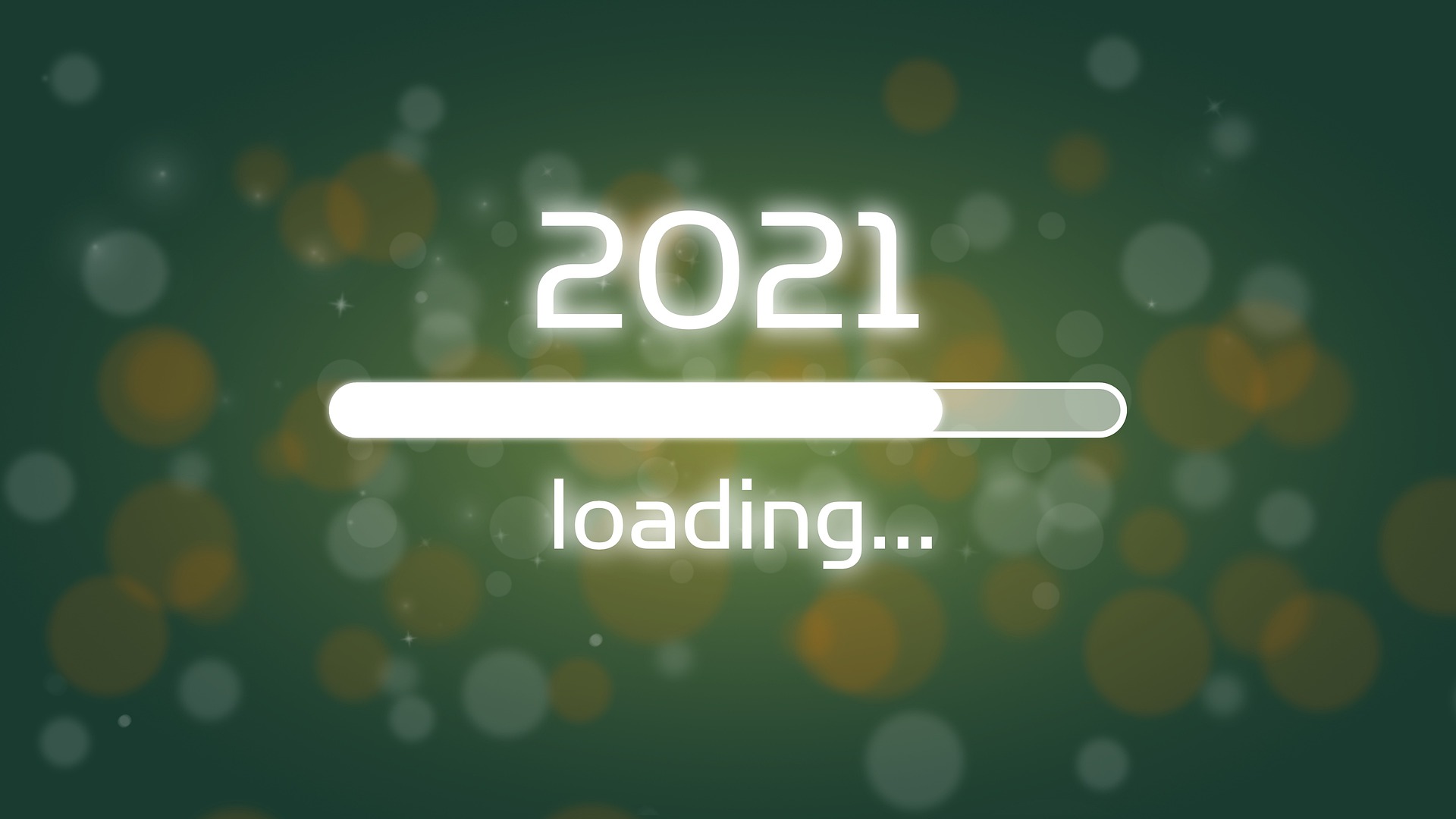
Parent Map, an online magazine tailored to families in the PNW, shared a list of kid-friendly celebrations to help ring in 2021. Virtual celebrations hosted the morning and afternoon of New Year’s Eve are available to accommodate sleep routines. Events include activities such as creating family time capsules, drinking celebratory mocktails, and crafting. There is even a mini-concert and countdown to Noon Year’s Eve with children’s singer Nancy Stewart! For night-owls, there’s also information about New Year’s at the Needle, a digital effect show that will begin at 11:35 pm. How will your family celebrate?
By Taylor
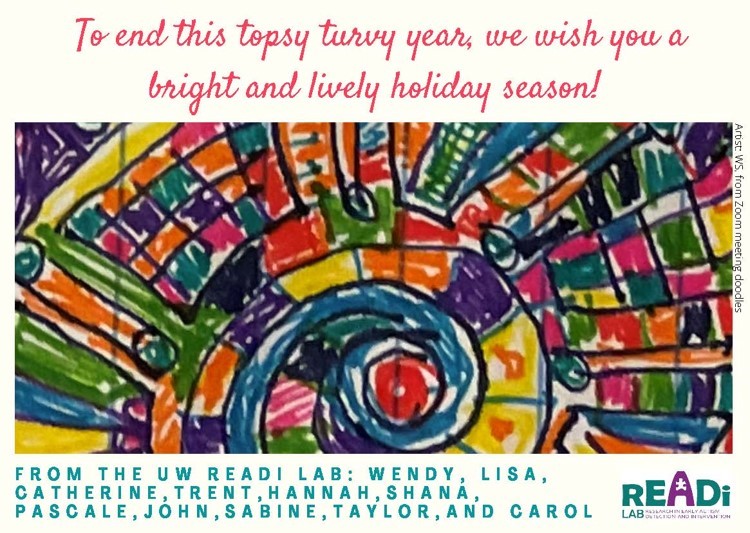
By Taylor
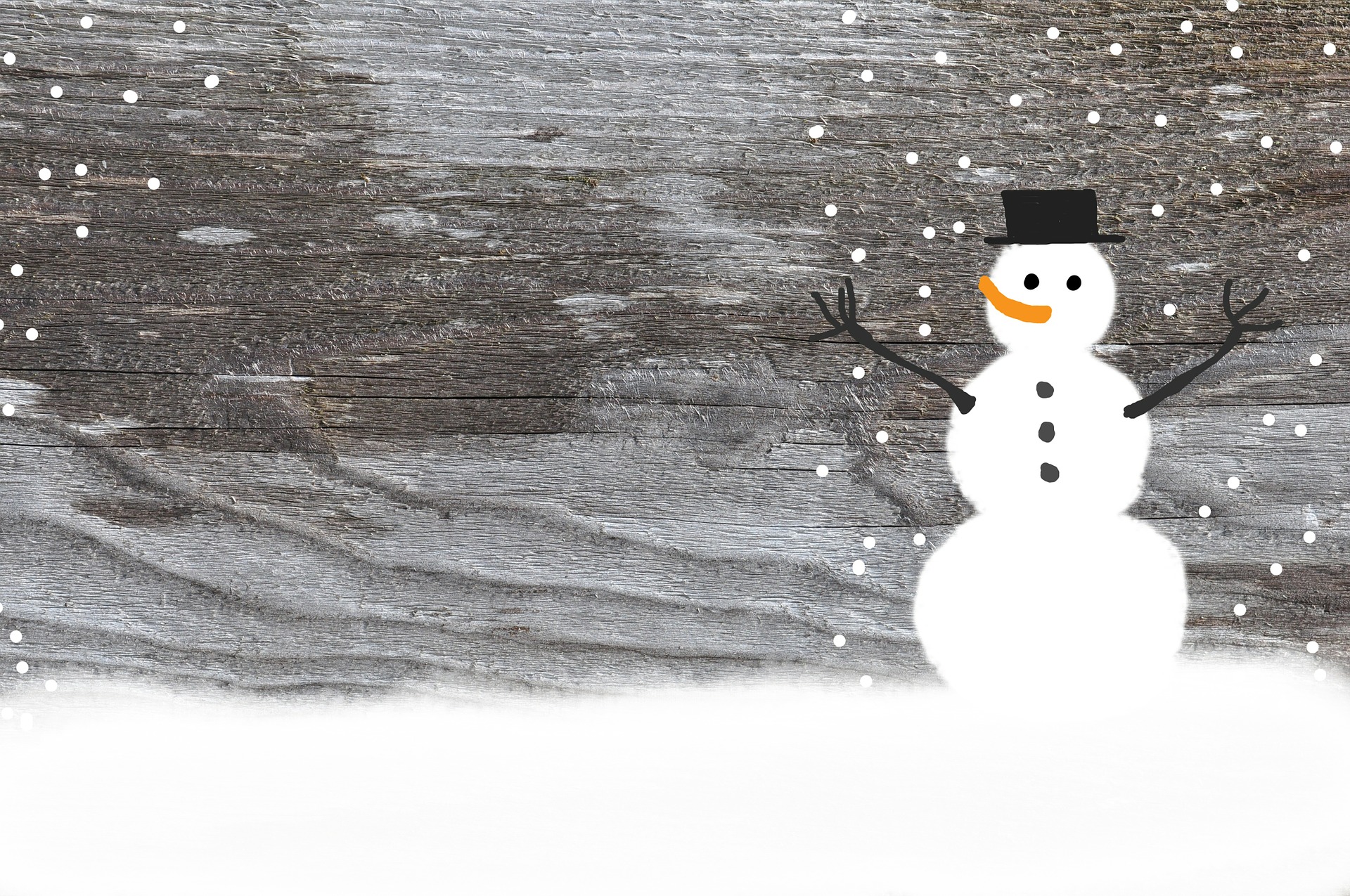
The 2020 Holiday Season is here! Regardless of how families celebrate, some children with autism may struggle with changes in their routine associated with family traditions. Autism Speaks shared a brief article that shares a few holiday tips and tricks as reported by other autism families. Taking a break from school, celebrating virtually, giving and opening gifts, and making new traditions are explored. Links to resource guides and autism-friendly virtual events are also shared. Join in the holiday fun here.
By Taylor
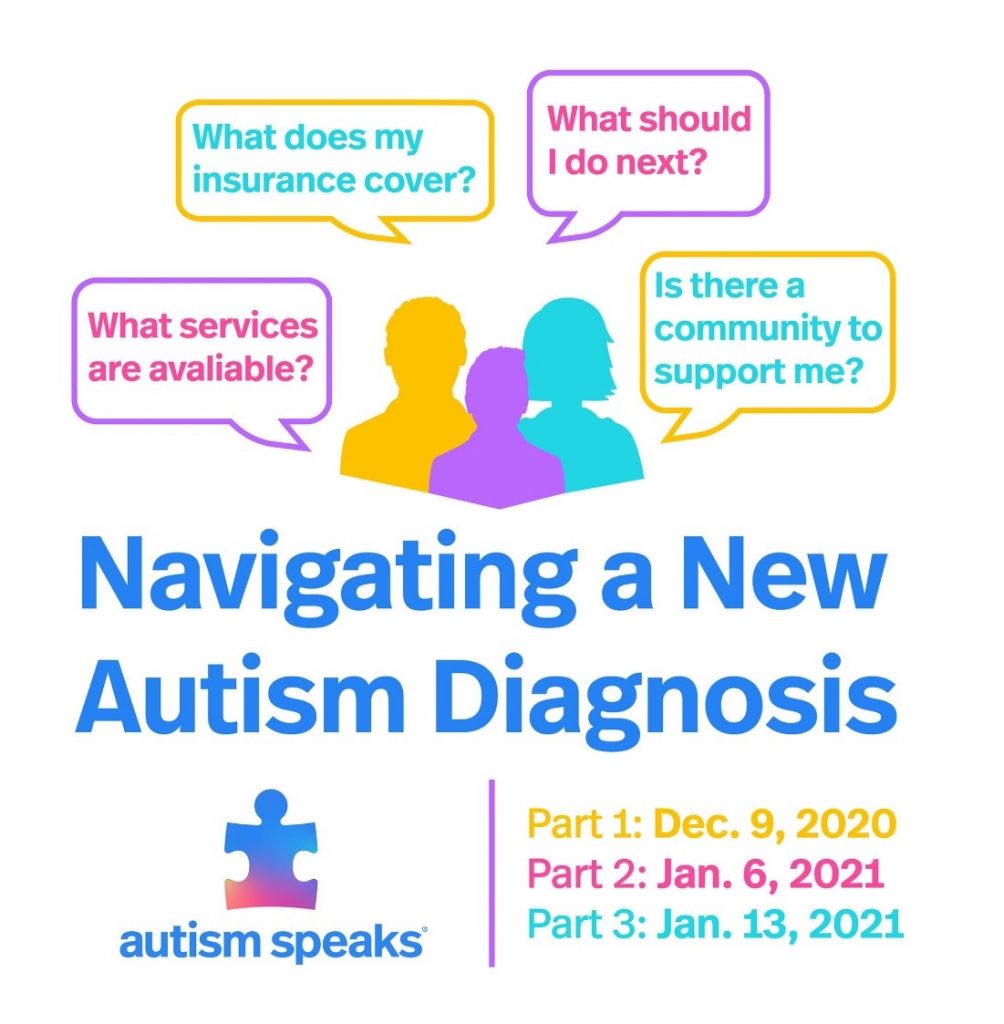
Receiving an autism diagnosis is a critical first step towards developing an active care plan that best supports affected individuals. This is a sensitive time for families, who often have questions about what such a diagnosis means for their loved one. Autism Speaks will be hosting a free, three-part series for families and care providers to help answer questions and to navigate next steps. Topics vary across the three sessions, but all include the personal experiences of parents, self-advocates, topic experts, and other members of the autism community.
Topic information with dates and times are below. You can learn more or register for the event(s) here.
Part I: Navigating A New Autism Diagnosis: Where Do I Begin?
Wednesday, December 9, 2020
3:00 PM – 4:00 PM PST
Wednesday, January 6, 2021
3:00 PM – 4:00 PM PST
Wednesday, January 13, 2021
3:00 PM – 4:00 PM PST
Photo credit: Autism Speaks
By Taylor
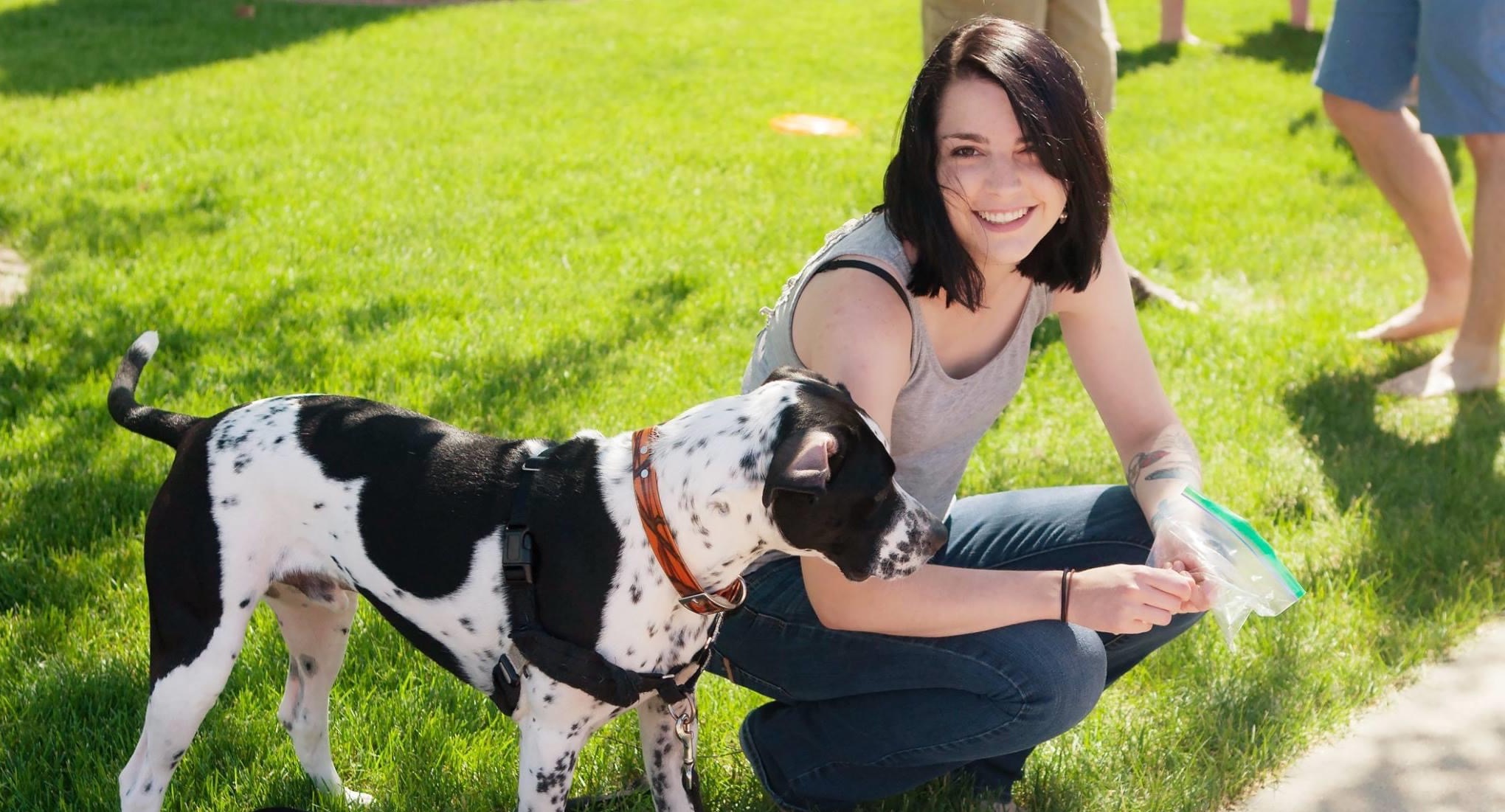
Meet Taylor (and her speckled shadow, Milo!), READi Lab’s newest full-time Research Study Assistant! While she’s still quite new to Seattle, she has personal experiences with Autism Spectrum Disorder (ASD) that motivated her to change career paths. Her goal of reducing barriers to evidence-based ASD services means she fits right in with our team! Learn a bit about her below.
You’re pretty new to the READi lab team. What attracted you to the READi lab?
It has been demonstrated that early identification and intervention helps people with autism reach their best outcomes, but these systems also face unique challenges and demands. Our READi lab team uses multiple approaches to answer big questions about early autism care in a manner that also provides resources and supports for study participants and local communities. The location between two gorgeous mountain ranges definitely helped, too!
What do you want to be when you grow-up?
At one point, I wanted to be a wildlife rehabilitator – that’s what I originally pursued during my undergrad! Today, my aspirations are to combine my desire to ensure all people with autism have access to evidence-based diagnostic and therapeutic services, my biological roots, and my budding interest in machine learning. Now, what title best suits that… I’m not entirely sure.
What’s your favorite R Color Brewer palette?
I usually favor Spectral or Set 2.
What’s your favorite dinosaur?
Spinosaurus Rex! Spinosaurus was bigger than both T. Rex and Giganotosaurus, making it the largest carnivorous dinosaur who ever lived. Some paleontologists argue it was the first dinosaur to swim, too!
What types of animals did you most enjoy working with while in wildlife rehab?
My favorites would have to be raptors. I had the unique opportunity to work with owls, hawks, vultures, falcons, and even a golden eagle (who was not native to Wisconsin, unlike me).
Two truths and a lie! (Scroll down to see Taylor’s fib!)
I was fortunate to have the opportunity to build upon Jak Panskepp’s work on the importance of play and instrumental conditioning concepts. So, I tickled rats… for science!
By Taylor
